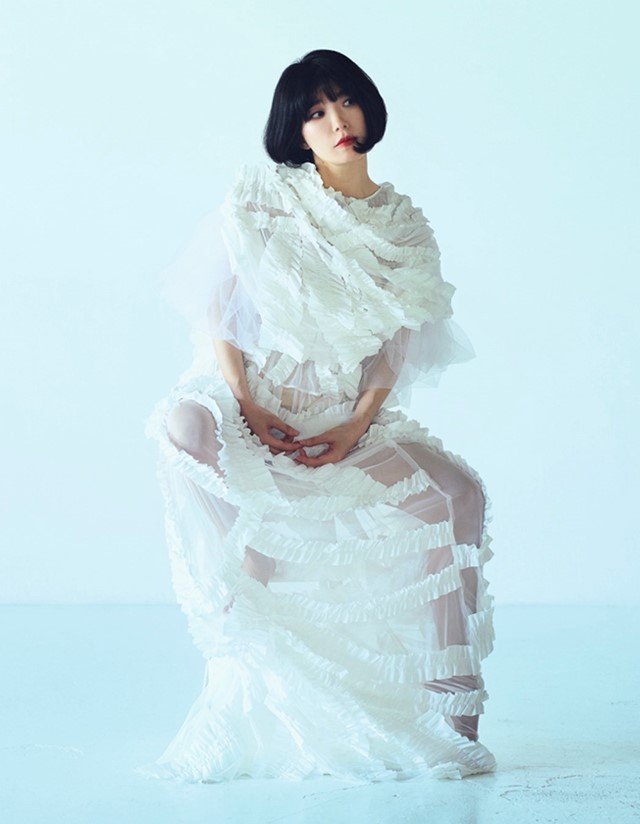“I feel like death is always somewhere in the same room and its presence is rather large,” says Mieko Kawakami, whose earthy, unflinching books about sex, misogyny and the feminine bodily experience have earned her acclaim around the world
This article is taken from the Autumn/Winter 2022 issue of AnOther Magazine:
“When I was seven my grandfather passed away. At his funeral I was asking everyone, ‘After Grandpa is burned and turned into ashes, where will his own memories go?’ The things I think about have not changed since. I feel like death is always somewhere in the same room and its presence is rather large. Death will never go away. Rather, it is I who will leave the room first, or disappear within it. It’s not that I am fearful, but I almost despair that there is this unavoidable, inexorable fact of losing awareness. For humans, death is the most irrevocable thing. But the fact that being born is, in the same way, also something irrevocable is what made me write my novel Breasts and Eggs. All of the gradations between life and death, particularly the sense that death is something that accompanies all living things and needs to be dealt with, as well as the realisation that all things are in the process of being lost – these are the sources of my creative work.”
In 2008, the acclaimed author Mieko Kawakami shook up her native Japan’s traditional, male-dominated literary scene with her Akutagawa Prize-winning novel, Breasts and Eggs – an arresting tale of three women navigating adolescence and motherhood in Osaka. The book was deemed “unpleasant and intolerable” by Tokyo’s governor at the time, Shintaro Ishihara, due to its earthy, unflinching descriptions of sex, misogyny and the feminine bodily experience in a still largely patriarchal world. In her 2009 book, Heaven – translated into English last year and shortlisted for the 2022 International Booker Prize – Kawakami continues this fearless interrogation of Japanese society, shifting her attention to teen violence and the brutality of school life. This year she published All the Lovers in the Night, an incisive tale of female friendship, loneliness, and the painful search for connection.
Make-up: Mieko Yoshioka. Photographic assistant: Misaki Kawabe. Producer: Taka Arakawa
This story features in the Autumn/Winter 2022 issue of AnOther Magazine, which is on sale internationally now. Buy a copy here.
